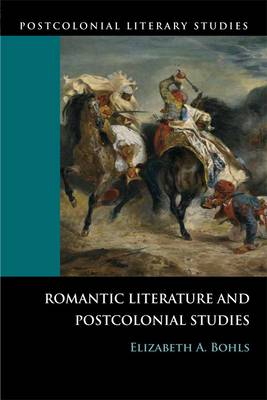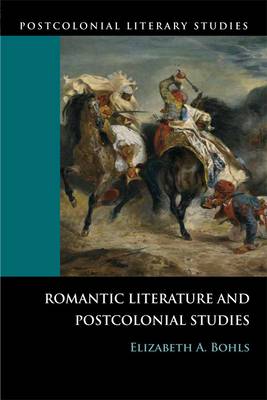
- Retrait gratuit dans votre magasin Club
- 7.000.000 titres dans notre catalogue
- Payer en toute sécurité
- Toujours un magasin près de chez vous
- Retrait gratuit dans votre magasin Club
- 7.000.0000 titres dans notre catalogue
- Payer en toute sécurité
- Toujours un magasin près de chez vous
Description
Demonstrates the importance of postcolonial approaches to understanding the literature of the period 1787-1833
Arguing that literature of the Romantic period must be understood in the context of British colonial expansion and imperial rule, this text surveys Romantic literature's role in consolidating Britain as the centre of empire. It highlights the ways in which the expanding print market served readers eager to learn about the wider world: Romantic poetry and travel writing, for example, went hand in hand. Elizabeth Bohls shows that while Exoticism and Orientalism help us understand colonial discourses and imperial ideologies, texts not overtly concerned with the exotic, like Wordsworth's and Austen's, also engage the historical problematic of empire.
Key Features
Covers travel writing, slave narratives, political prose as well as novels & poetry
Reads canonical materials (Coleridge, Austen, Scott, Shelley, etc.) in new ways
Wide coverage: the Romantic Geographies chapter treats travel in the Pacific, Canada/North America, the Caribbean, Africa and India, while the Romantic Orientalism chapter treats writings on India
Spécifications
Parties prenantes
- Auteur(s) :
- Editeur:
Contenu
- Nombre de pages :
- 224
- Langue:
- Anglais
- Collection :
Caractéristiques
- EAN:
- 9780748641994
- Date de parution :
- 22-01-13
- Format:
- Livre relié
- Format numérique:
- Genaaid
- Dimensions :
- 155 mm x 234 mm
- Poids :
- 476 g

Les avis
Nous publions uniquement les avis qui respectent les conditions requises. Consultez nos conditions pour les avis.






